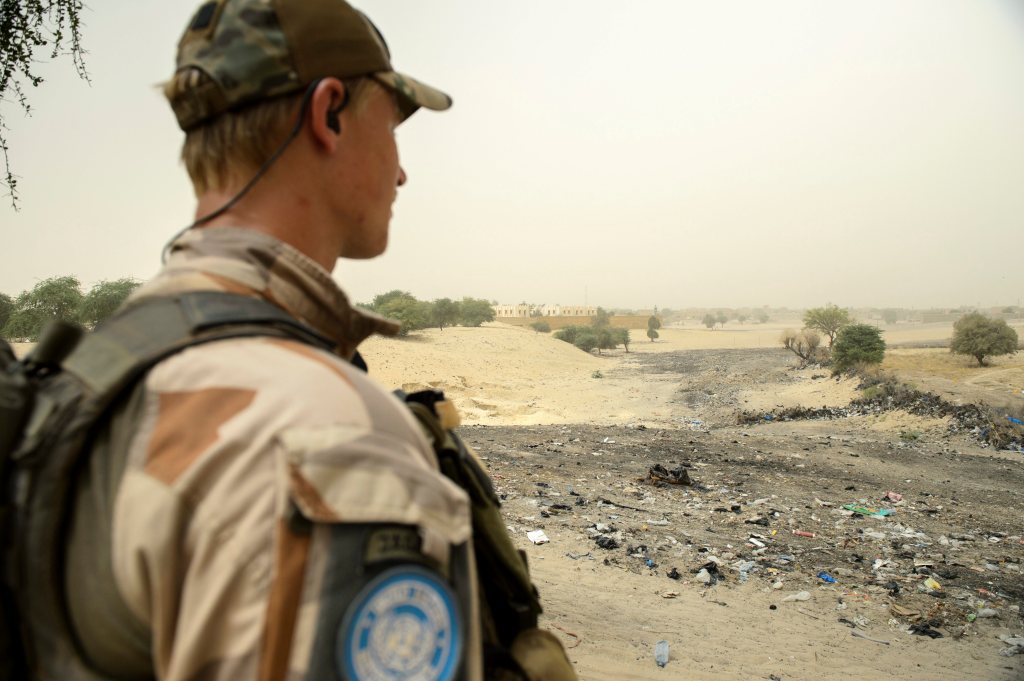Canada will send troops and helicopters to Mali as part of the United Nations’ most dangerous current peacekeeping operation, government officials said on Monday, raising questions about how effective the deployment will be in tackling a complicated insurgency in the country’s north.
The Canadian peacekeeping commitment will last for one year. It will include Chinook and Griffon helicopters for transport, logistics and armed escort, the government announced. They did not disclose how many soldiers will be deployed on the UN mission in one of the world’s poorest countries.
Videos by VICE
Mali has been in the throws of a complex insurgency since 2012 involving a weak central government, a northern separatist movement, al Qaeda, French and African troops and competing bands of smugglers.
Analysts expect the Canadian deployment will include about 200 soldiers working from the Gao area in Mali’s insurgency-hit north, but many question what tangible gains Canadian forces can bring to stabilizing the country.
“In terms of the situation on the ground, I doubt [the Canadian commitment] will change anything,” said Bruno Charbonneau, director of the Centre FrancoPaix for Conflict Resolution and Peace Missions at the University of Quebec in Montreal.
“This is more of a commitment to Canada’s European allies, rather than to Mali or peacekeeping,” Charbonneau told VICE News. European politicians fear lawlessness and conflict in Mali allow traffickers and religious extremists to use the country’s territory to destabilize its neighbours and Europe itself.
The Canadian contingent will replace German forces, who will be leaving the region later this year, said Charbonneau who recently returned from Mali.
“The Europeans put a lot of pressure on [Prime Minister Justin] Trudeau to commit troops,” he said, in light of the Liberal government’s election promises to support U.N. missions.
Canada’s peacekeeping contribution is currently at a historic low, with 43 peacekeepers deployed globally at the end of December, down from 62 in November, according to the most recent United Nations figures.
More than 160 UN peacekeepers have died in Mali since the mission was launched in 2013, making it the most deadly active mission for United Nations forces.
HOW WE GOT HERE
Chaos in the landlocked north African nation kicked off in 2012 when Tuareg rebels launched a rebellion in northern Mali, seizing control of about half of the country’s territory. Angry over the government’s inability to quell the unrest, the military launched a coup, ousting President Amadou Toumani Toure.
Tuareg rebels, who were largely secular, declared an independent state in northern Mali called Azawad. Islamist fighters affiliated with al Qaeda and other radical groups then began fighting against Tuareg separatists and the government in a multifaceted civil war with complex and changing allegiances.
“Mali… doesn’t fit the clean nation state model,” James McKay, a political scientist at the Royal Military College of Canada (RMC) told VICE News, adding that “it has a complex human geography,” between the Tuareg in the north and residents of the more prosperous south, who have different linguistic, ethnic and cultural traditions.
Bamako, the capital, is in the south of Mali and most of the country’s political class come from southern communities, leaving the Tuareg and other northern communities to say they are marginalized.
Alarmed by the chaos and the rising power of al Qaeda, West African states and France — Mali’s former colonial master — sent troops into the country in 2013, retaking control over much of the north.
A peace deal was later signed between the government and a leading Tuareg separatist group, although the insurgency and broader lawlessness continue across much of the north, where the state is virtually non-existent.
‘BLOOD AND TREASURE’
A new presidential election is set for July and analysts say establishing a functional government in Bamako is crucial if the peacekeeping mission is to have a chance at bringing about lasting stability. Along with the UN mission, France maintains a separate military presence in the country, which is devoted to what it calls counter-terrorism operations.
With a year-long commitment, the Canadian intervention is mostly about providing medical evacuation support to U.N. peacekeepers and airpower for their mission, rather than trying to reshape the country, said McKay.
The Canadian government has not said how much the deployment is expected to cost, nor has it outlined what a successfully completed mission would entail.
“Sticking to the narrow parameters of the Canadian deployment, a job well done would look like a meaningful contribution to the mission and a cost measured only in treasure, not blood,”McKay said. “We can’t guarantee the latter.”




